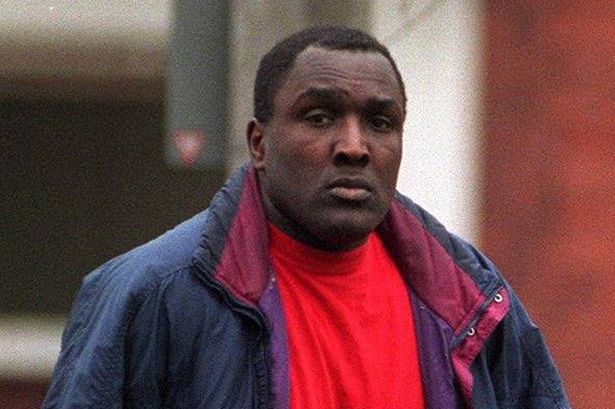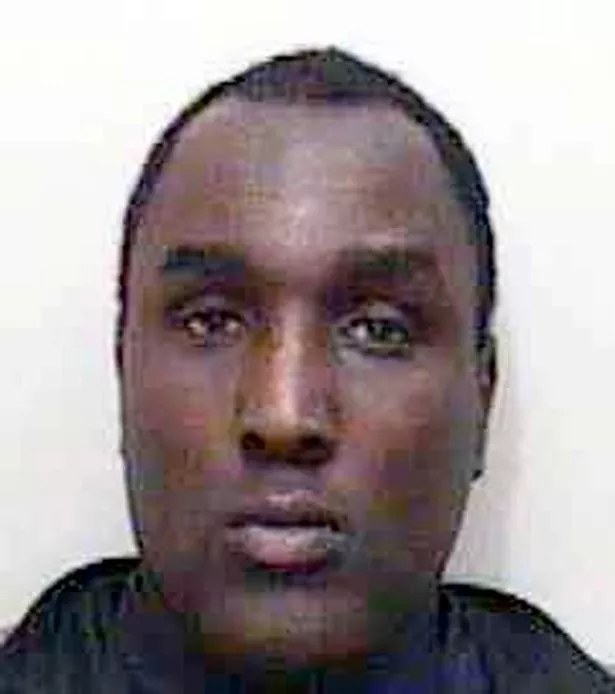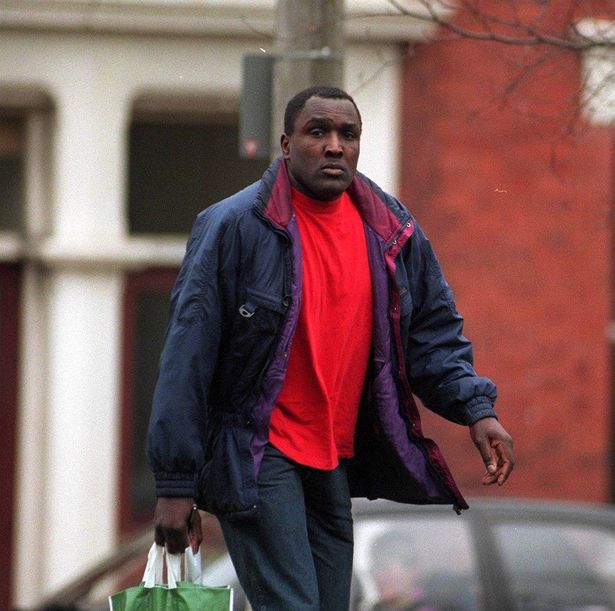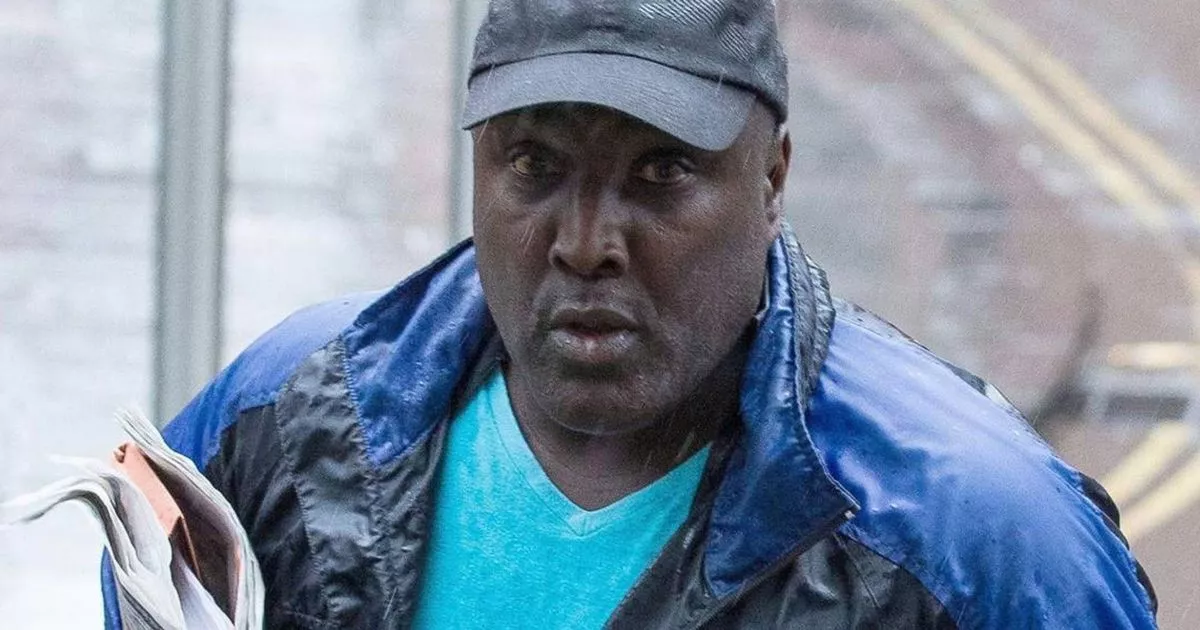The legend that built up around Akinwale Arobieke, who died aged 64 this week, was explored in a 2016 BBC investigation
09:02, 30 Aug 2025Updated 12:14, 30 Aug 2025
 Akinwale Arobieke
Akinwale Arobieke
Akinwale Arobieke’s death earlier this week prompted exactly the sort of reaction you’d expect. Mr Arobieke’s notorious reputation across the north west for touching people’s muscles meant he was adopted as a meme by the internet generation.
The Manchester-born bodybuilder’s face pops up in unlikely places on banners at events like Glastonbury and Wrestlemania, the Liverpool Echo reports. News of his death at 64 was largely greeted with this same treatment online, but the light-hearted discourse can detract and trivialise from the serious undercurrent of his story.
That contradiction is at the heart of a 2016 BBC investigation from Jon Kelly and a subsequent documentary – The Man Who Squeezes Muscles – released in the same year.
The 15 minute programme, which has since been removed from iPlayer but can still be viewed on YouTube, was fronted by Ben Zand, a journalist who had grown up in an environment where the mythology around Mr Arobieke had grown to such an extent that he wondered if he was even a real person.
It was a view shared by some of the members of the public interviewed in Liverpool city centre during the opening of the documentary.
Never miss a story with the MEN’s daily Catch Up newsletter – get it in your inbox by signing up here
One woman describes Mr Arobieke as ‘like a ghost story that goes around the playgrounds to scare people’. A man from a car shouted: “He’s the bogeyman of Liverpool. That’s all what he is.”
Mr Zand learned that couldn’t have been further from the truth. Those who came face to face with Mr Arobieke were shocked to discover people genuinely thought he was an urban legend. Elaine Jordan was in a relationship with Gary Kelly, who died in 1986 when he was allegedly running away from Mr Arobieke.
Elaine told the BBC she hadn’t heard anything of Mr Arobieke until he started approaching her late partner. She added: “He was like a b****y ghost. You’re at the bus stop and there’s no-one there. And then the next minute, he’s there right next to you.
“Gary was absolutely terrified of him. But you would be, wouldn’t you? He’d be standing in the entry at the side of his house. So you wouldn’t know he was there.
“As Gary would leave the side of his house to come to mine, he’d just step outside of the entry. And then Gary would go down the entry with him and that’s when he’d make him do the squats.
“Gary said [Arobieke] would get excited by that so that’s why he went to the police in the end and got a harassment order.”
Elaine claimed the order stipulated Mr Arobieke was unable to travel across the Mersey to the Wirral, but said he broke this the day Gary died in 1986.
 Akinwale Arobieke was found dead in his flat
Akinwale Arobieke was found dead in his flat
She said Gary had gone to the New Brighton baths and had spotted Mr Arobieke at the entrance when he left. Elaine added: “Gary panicked because he’d got the police involved.
“He ran to get the hell out of there and get home. He tried to mingle into the crowd. [Arobieke] followed him to the train station. [Gary] has just gone into panic mode and his only escape would have been to cross the lines and escape over the fences. He got caught on the lines and got electrocuted.”
Mr Arobieke was convicted of manslaughter, but this was overturned when judges at the Court of Appeal ruled he had not acted unlawfully.
Elaine was pregnant with Gary’s child at the time of his death.
The documentary features an interview with Gary’s daughter, Jamielee. She said she was sickened by the way the myth had developed to a point where Mr Arobieke became a figure of fun.
She said: “For a lot of people, he is a joke, he is a bogeyman. My boyfriend says people walk through town and if people see him, they’ll take selfies. But not a lot of people are aware of what happened to my dad. It’s a sickening dip in my stomach because that actually happened to people.”
“Since the internet he’s become a joke. It’s hard for me to hear. My dad lost his life.” During the reporting of the documentary, the BBC said Arobieke was asked several times to comment on claims they planned to report but that he had not responded.
 Akinwale Arobieke in the ’90s
Akinwale Arobieke in the ’90s
After it was released, Mr Arobieke told The Guardian the film was racist and failed to point out that he has never been convicted of a sexual offence and that he was compensated after his conviction for manslaughter was overturned.
Mr Arobieke did serve time in jail during his life as he was jailed for six years in 2003 after being convicted of harassing 15 men.
Three years later, while he was still behind bars, a Sexual Offences Prevention Order (SOPO) was put in force, on the application of Merseyside Police, which banned him touching men’s muscles and going to gyms.
Following the SOPO, Mr Arobieke appeared repeatedly in court accused of breaching it before he represented himself in court and managed to overturn the order.
The bodybuilder was never convicted of a sexual offence, always denying in court appearances that he gained any sexual gratification from touching muscles, and claimed in an interview with the Liverpool Echo he was the subject of a witch hunt before he received a substantial payout from police in 2022.
He was handed the payout when he sued the Chief Constable of Greater Manchester Police for malicious prosecution and misfeasance in public office. It came after he claimed two GMP police officers carried out a campaign against him to get him into trouble.
The payout came just weeks before the trial was due to take place at Manchester County Court. In his civil claim against GMP, Mr Arobieke alleged that from 2012 he was targeted by two particular officers, who were not publicly named. Mr Arobieke, who was a well-known figure in Merseyside, died at his home on Devonshire Road in Toxteth in what are believed to be non-suspicious circumstances.
Merseyside Police said officers were called at around 8.30pm on Tuesday, August 26 to reports of a man in his 60s who was found unresponsive at the address near to Princes Park. He was pronounced dead at the scene.
His death is not believed to be suspicious and the coroner for Liverpool and Wirral confirmed it had received a file from Merseyside Police.

